Inside the school tackling sexual harassment head on
- Published
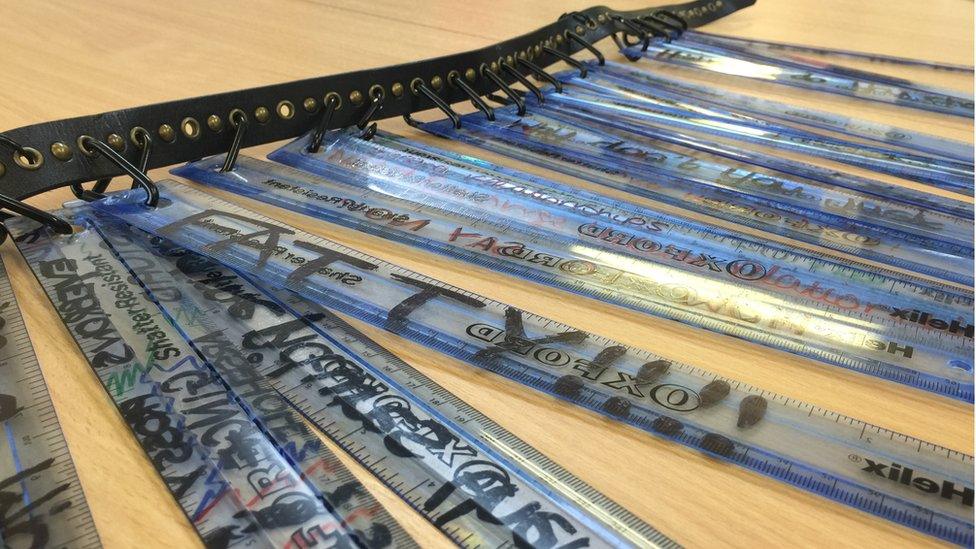
In the heart of the south Wales valleys, a school is facing up to the problem of sexual harassment.
Students at Pen-Y-Dre high school in Merthyr Tydfil have been sharing their experiences.
It's after MPs criticised schools for not taking the issue seriously enough - but here they are tackling it head on.
"We started to realise what was right and wrong and it snowballed from there," says Libby, 17.
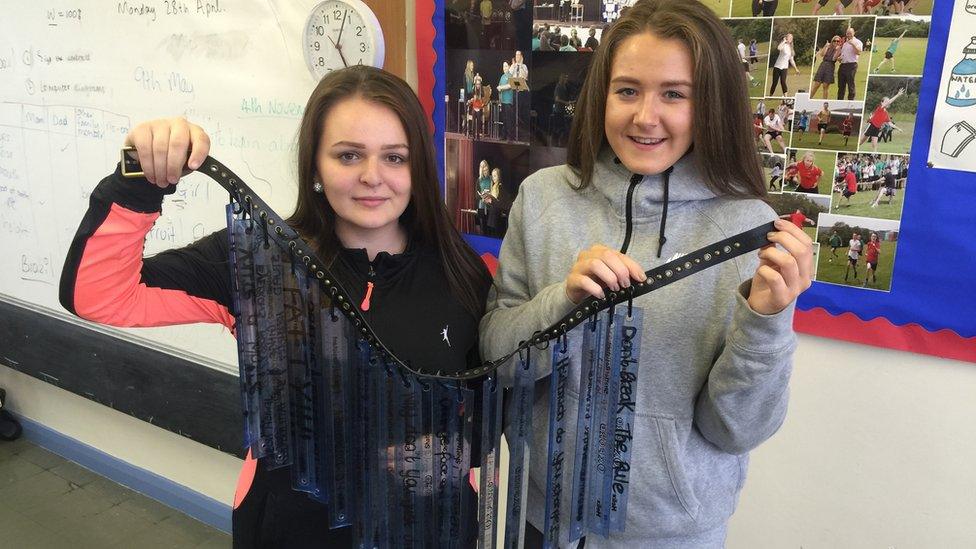
Chloe and Libby, who didn't want us to use their surnames. They made the ruler skirt, containing insults and inspirational messages, as a reference to rulers being used to lift girls' skirts.
She's one of several year 11 students taking part in the Relationship Matters project, designed to find "safe" ways to address sexual harassment and violence.
A report by the women and equalities select committee suggests a third of 16 to 18 year-old girls have experienced "unwanted sexual touching" at school.
"It's not just name calling, there's actual physical harassment now," Libby explains.
Learning right from wrong
"You might be walking down the street and a car's beeping at you - it is much deeper and it leaves you with that scar."
She says the project has helped her and others realise what sort of behaviour is unacceptable.
"Things like this actually teach you what's right and what's wrong, whereas some people might just think it's normal."
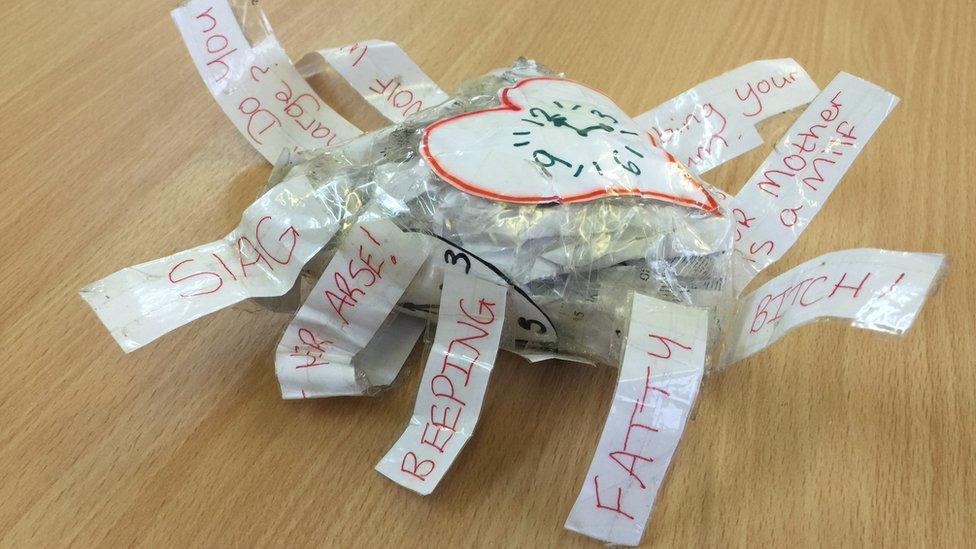
The tagged heart was used by students to demonstrate how insults can hurt people's feelings
The project has been led by Emma Reynold, professor of childhood studies at Cardiff University.
"What we're trying to do is to find methods to safely express things without revealing too much of themselves," she explains.
"It wasn't surprising that some of the young people were very keen to take part."
Courtney said it was a difficult subject to tackle at first.
"I felt really uncomfortable first of all telling my own experiences to everyone else, but when I was in a school group of friends, it made me realise my problems were happening to other people."
One of the aims of the project is to provide students with an alternative to social media as a place to address the issue.
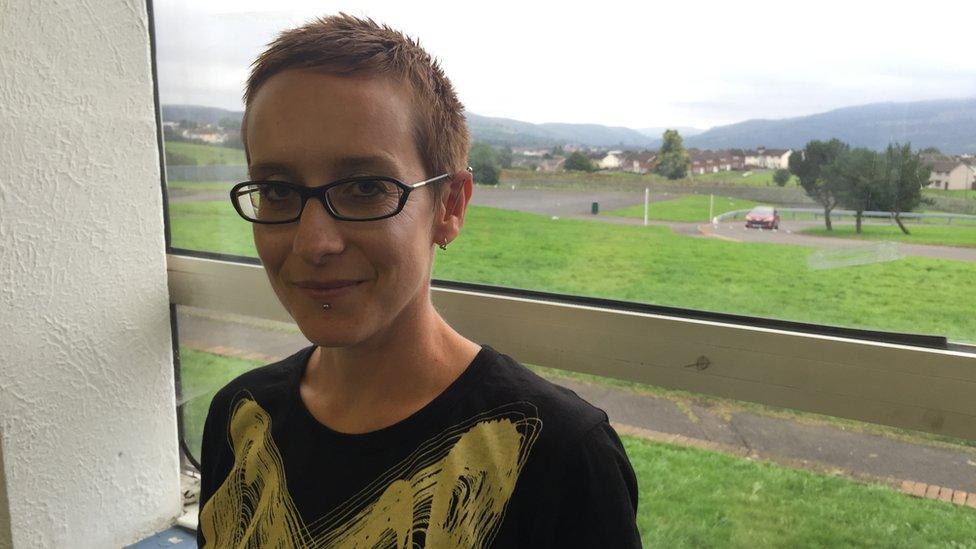
Professor Emma Renold of Cardiff University led the project with funding from the Economic and Social Research Council and the Arts and Humanities Research Council
Libby says online abuse can be the most difficult.
"You go home and it's constant. You might finish school and think its OK but it just starts on social media and it's just a cycle really."
The students presented their work in assemblies, which they say was daunting at first.
"We thought 'should we be the one to speak to people about that or should it come from a teacher'?"
"But it needed to be addressed by someone and maybe people do feel more comfortable hearing from someone close to their own age so it doesn't feel patronising."
Courtney explains how a prop from an exercise called "the tagged heart" highlights the most commonly used insults.
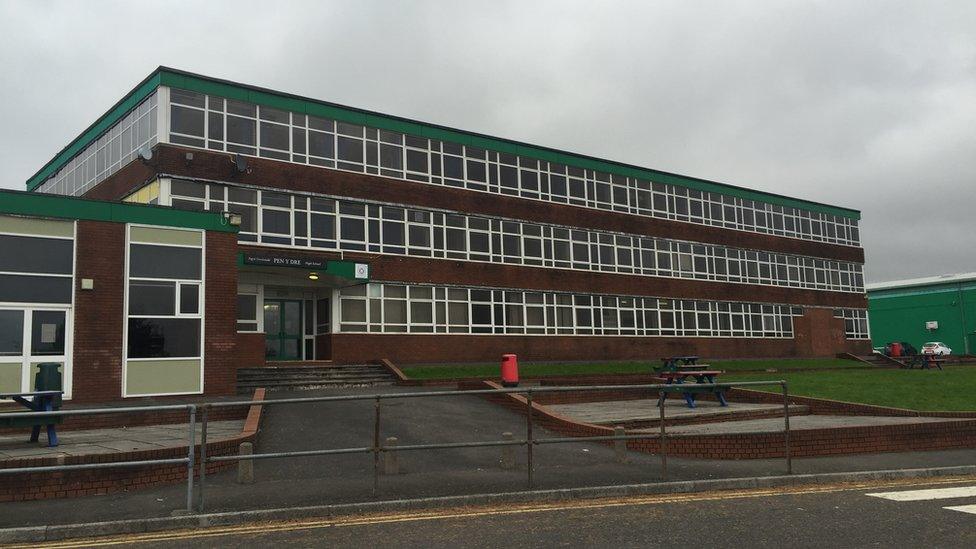
Pen-Y-Dre High School's work was presented as evidence to the Women and Equalities committee during their review of sexual harassment in schools
"Wolf-whistling, 'fatty', grabbing you bum, 'your mother's a MILF'.
"We wrote our feelings down, crumpled them into paper balls and created a heart shape and taped it up.
"The words around the love heart are some of the words that people anonymously gave us in our assemblies."
Schools have been criticised by MPs for not tackling the problem of sexual harassment properly.
The headmaster of Pen-Y-Dre, Keith Maher, hopes the school's work will be a positive example to others.
'Empowering' students
"I think it's helped us build a really, really strong sense of self - a respectful community where we understand and explore how people behave act and how they respond to each other.
The project was submitted as evidence to the Women and Equalities Committee and features in the Welsh government's good practice guide.
How do the girls involved sum up their experience?
"We feel empowered," Chloe said.
Libby adds that there is more to be done: "We may have started something in our school raising awareness, but that needs to happen on a bigger scale."
Find us on Instagram at BBCNewsbeat, external and follow us on Snapchat, search for bbc_newsbeat